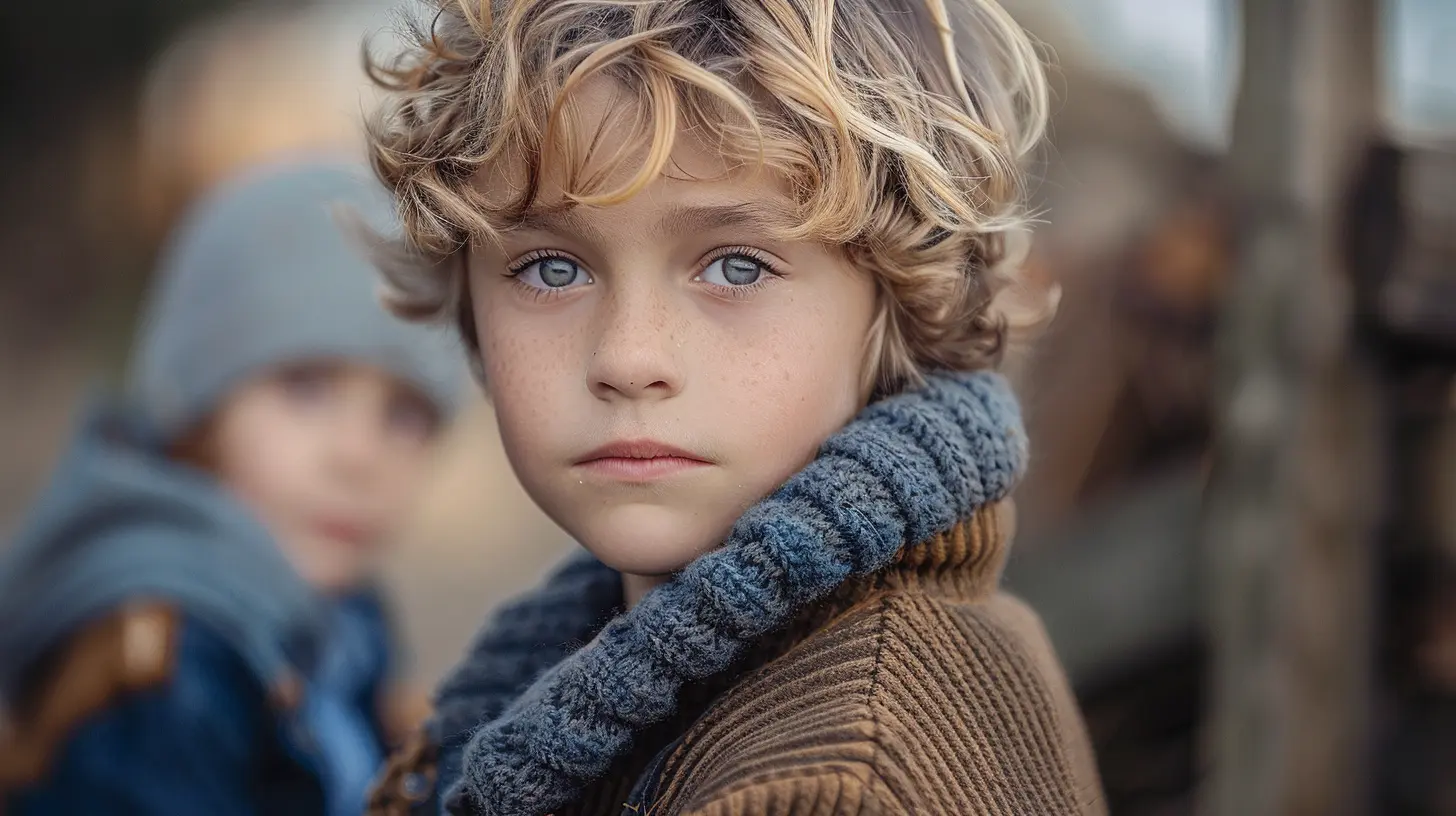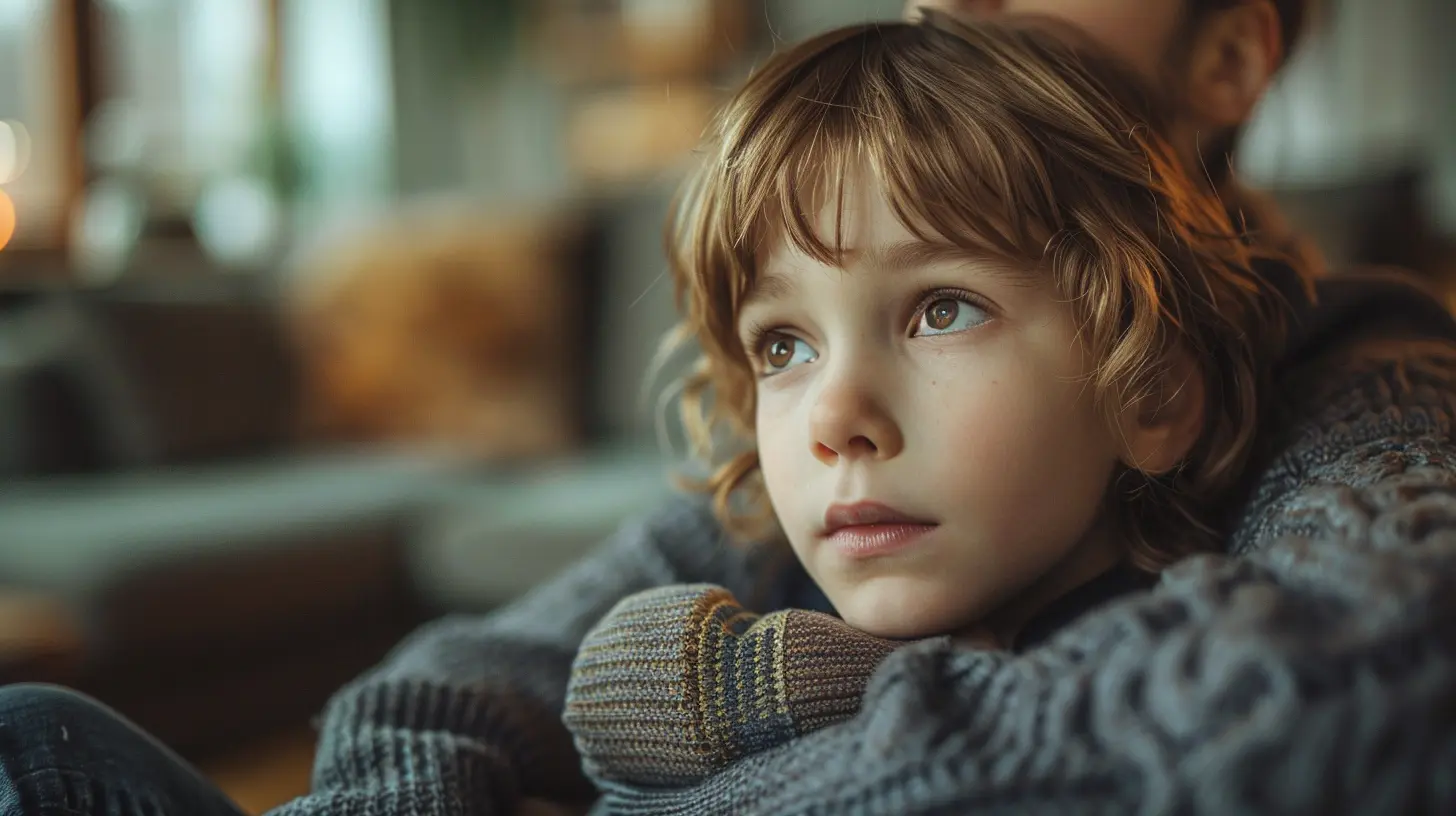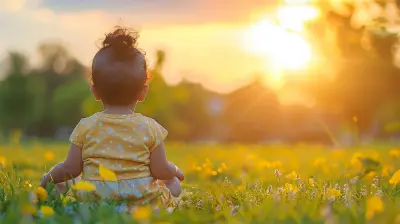Talking About Divorce from a Child's Perspective: What They Need to Hear
15 May 2025
Divorce is never easy. For the adults involved, it’s a tangle of emotions, paperwork, and life adjustments. But for children? It’s a whirlwind of confusion, fear, and uncertainty. While parents wrestle with logistics and legal matters, kids are left wondering, What happens now?
Talking to children about divorce isn’t just about breaking the news; it’s about ensuring they feel safe, loved, and heard throughout the entire process. But how do you frame this difficult conversation in a way that makes sense to them? More importantly, what do they need to hear?

Understanding Divorce from a Child’s Perspective
Before diving into what to say, it’s crucial to step into a child’s shoes. Divorce can feel like their entire world is shattering. The two people they rely on the most are suddenly not a single unit anymore, and that shakes up their sense of stability.Children of different ages process divorce differently.
- Toddlers may not grasp the concept fully but will sense the emotional changes.
- Elementary-aged kids often feel responsible, wondering if they did something wrong.
- Teenagers might experience anger, resentment, or even relief, depending on the family dynamics.
No matter their age, one thing is universal: kids need reassurance.

What Children Need to Hear When You Talk About Divorce
1. "This is not your fault."
One of the biggest fears children have is that they somehow caused the split. Maybe they think it's because they misbehaved, got bad grades, or argued with their sibling too much.Parents must be crystal clear: the divorce has nothing to do with them. It’s an adult decision based on adult problems. Reassure them repeatedly, in different ways, until they truly understand that they did nothing wrong.
2. "We both still love you, and that will never change."
A child's greatest fear in divorce is losing love. They need to hear that, despite the separation, both parents' love for them remains unwavering.Explain how love between parents may shift or fade, but the love for a child is permanent. Use tangible examples: “Just like the sun rises every morning, our love for you is always there.”
3. "We're still a family, just in a different way."
Divorce changes the structure of a family, but it doesn’t erase it. Kids need to hear that even though things will be different, they still have a family. It helps to describe what this new “normal” might look like.- Who will live where?
- How often will they see each parent?
- Will they have two homes or stay in one?
Providing clarity helps ease their anxiety. Uncertainty is scarier than the changes themselves.
4. "It's okay to feel sad, angry, or confused."
Children often suppress their emotions because they don’t want to upset their parents. Encourage them to express their feelings openly. Let them know that whatever they’re feeling—whether it's sadness, frustration, or even relief—is completely valid.Avoid shutting down their emotions with phrases like “Don’t be sad,” or “Everything will be fine.” Instead, say:
"I know this is hard, and it’s okay to feel upset. We’re here to help you through this.”
5. "You can ask us anything."
Divorce raises endless questions in a child’s mind, but they might hesitate to ask. Make sure they know that any and all questions are welcome.Will I still see Grandma and Grandpa?
Will my birthday be different?
Can we still have family movie nights?
Encouraging open dialogue builds trust and reassures them that they have a voice in the process.
6. "We will handle adult problems—you don’t have to."
Some children take on a caretaker role, worrying about their parents' emotions instead of processing their own. Parents should make it clear: this is not their burden to bear.Reassure them that mom and dad will figure things out. Their only job is to be a kid—go to school, play, and be happy. Let them know they don't need to pick sides or fix anything.

Common Mistakes Parents Make When Talking About Divorce
Even the most well-intentioned parents can slip up. Here are some pitfalls to avoid:1. Badmouthing the Other Parent
No matter how frustrated or hurt you are, your child is half of that other person. Speaking negatively about them can make kids feel like they have to choose sides, which is emotionally damaging.Instead of saying, "Your dad/mom never listens," try, "We're working on figuring things out in a way that’s best for you."
2. Giving Too Many Adult Details
Children don’t need to know about financial struggles, affairs, or legal battles. Oversharing puts unnecessary stress on them.Keep explanations simple and focused on what affects them directly.
3. Making Promises You Can’t Keep
Telling kids, "Nothing will change," is misleading. Things will change. Instead, be honest: "Things will be different, but we will figure it out together."4. Expecting One Conversation to Be Enough
This isn’t a one-and-done talk. Divorce is an ongoing process, and kids will have evolving emotions over time. Keep the conversation open-ended.
Supporting Kids Emotionally During and After Divorce
Beyond words, actions matter just as much. Here’s how to provide emotional stability:1. Maintain Routines
Structure gives children a sense of security. Even if everything else is shifting, keeping consistent bedtime routines, meal times, and school activities can provide much-needed stability.2. Encourage Outside Support
If your child struggles significantly, therapy or counseling can be a safe space to process emotions. There's no shame in getting professional help.3. Spend Quality Time Individually
When living separately, ensure each parent gets one-on-one time with the child. This prevents feelings of neglect or favoritism.4. Co-Parent Respectfully
Children thrive when they see their parents working together, even after separation. Try to coordinate parenting styles and communicate respectfully.Final Thoughts
Talking about divorce with kids is tough, but it’s one of the most important conversations parents will ever have. What children need most is reassurance, honesty, and emotional support.They need to hear that they are not the reason for the divorce. They need to know they are loved unconditionally. And they need guidance in navigating this new reality.
Divorce doesn’t have to mean emotional devastation for kids. With the right words, actions, and unwavering love, parents can help children adjust, heal, and even thrive in their new family structure.
all images in this post were generated using AI tools
Category:
Divorce And KidsAuthor:

Tara Henson
Discussion
rate this article
3 comments
Vaughn McKinley
Kids are resilient and strong, and open conversations about divorce can empower them. By listening and validating their feelings, we can help them navigate this change with love and understanding, turning a difficult moment into an opportunity for growth.
May 22, 2025 at 3:53 AM

Tara Henson
Thank you for highlighting the importance of open communication! By validating children's feelings during divorce, we can indeed foster resilience and support their emotional growth through this challenging time.
Tempest McAdoo
This article raises such important points about children's feelings during divorce. I'm curious, what specific phrases or approaches have you found most effective in helping kids process their emotions? Understanding their perspective seems crucial for supportive conversations.
May 18, 2025 at 3:17 PM

Tara Henson
Thank you for your thoughtful comment! Effective phrases include "It's okay to feel sad" and "I'm here to listen whenever you want to talk." Ensuring children know their feelings are valid is key in fostering open communication.
Destiny McGuffin
Such an important topic! Kids need honesty and reassurance during tough times. ❤️
May 17, 2025 at 3:45 PM

Tara Henson
Thank you! Honesty and reassurance are indeed crucial for helping kids navigate this difficult experience. ❤️



